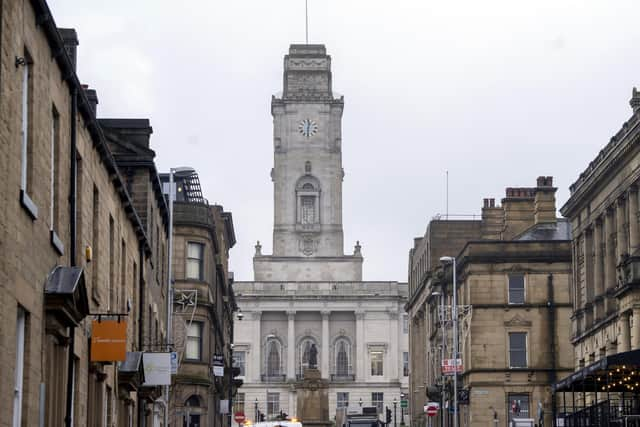Battleground Yorkshire: The North-South divide is a matter of live and death for voters
Between 2020 and last year the life expectancy for a man born in Hull was less than 74, in Hart in Hampshire this was more than 83.
Women in Barnsley will likely not make it to 80, while those in Chelsea will live past 86.
Advertisement
Hide AdAdvertisement
Hide AdPolicymakers are alive to the issue, but figures suggest that things are getting worse, with the life expectancy for Yorkshire’s men and women in these places falling every time since 2016 to 2018.


Women born in Barnsley two decades ago will live longer than their daughters born today, a legacy no party can be proud of.
Such gaps in life exist not just between the North and the South but within our region as well with men and women in the poorest and richest areas of Yorkshire seeing lifespans of up to seven years apart.
Over the past month I have dug deeper into the data and found that the disparities between north and south are mirrored, often alarmingly so, in our region.
Advertisement
Hide AdAdvertisement
Hide AdFrom the availability of an affordable new home for a young family, to spiralling crime rates, Yorkshire’s 54 seats show that the lottery of life extends not only to whether you live in the North or the South, but if you live in areas only a short drive away.
Over the next three months I will investigate how this plays out in 12 of Yorkshire’s constituencies, backed up with the data which clearly lays out the need for change from Westminster to close the gap.
On many issues there is no consensus on how these gaps are addressed.
On housing, there is a divide between those who want new homes and those who want to retain the character of the place they have lived all their lives.
Advertisement
Hide AdAdvertisement
Hide AdFor improving the nation’s health, the budget of the NHS is unsustainable despite the need for it becoming greater than ever in recent years.
What is most worrying for Yorkshire’s population is that for the main parties there are issues where there is not only no consensus but also no debate on the biggest existential questions the country faces.
Social care, which will only become a bigger issue as the population continues to age, has no clear future in the UK, with both Labour and the Conservatives yet to show how it will be properly managed, lest voters flee for finding out how much it will cost them.
Following the tumult caused by Brexit, the pandemic, war and global economic strife, Yorkshire paints a clear picture for the need for both healing the social and physiological scars of the past decade and building a consensus on how to safeguard the country from the future anguish that will inevitably come its way.
Advertisement
Hide AdAdvertisement
Hide AdOn issues such as housing, social care, pensions, inequality, defence spending, benefits, immigration, climate change, the region requires better than tinkering around the edges, and this general election could give an incoming Government a chance to reform, and to plan.
Yorkshire has borne the brunt of short-termism from Thatcher to Blair and Brown to Truss, and the data and the personal stories of people living in the county are testament to not only the need for change, but also the desire for it.
Despite Labour being on course for a thumping victory in the polls, nation-wide and in the region, this will not guarantee advancement for the lives of the people who live here.
The mandate for six incoming Labour cabinet ministers, including the chancellor, will come from Yorkshire’s voters, a direct line from ballot box to the cabinet table.
Advertisement
Hide AdAdvertisement
Hide AdRishi Sunak’s administration is a warning of how far this extends, as despite having a Yorkshire MP being the most powerful politician in the land, he has seemed utterly powerless to deliver the change and improvement that the region has been demanding for decades.
If an incoming Labour government can be warned of one thing, it is that it cannot take the region’s support lightly.
Tony Blair and Gordon Brown’s administrations relied on, and subsequently forgot, the voters that supported the party for more than 20 years before Labour regained office.
The votes won by Boris Johnson have subsequently been lost in less than half a decade, and Labour will need to deliver tangible improvements to people’s lives if they are to win them back and to keep them for more than one term.
Advertisement
Hide AdAdvertisement
Hide AdSir Keir Starmer says that he wants to end the “sticking plaster politics” of short-termism that has pervaded the UK in recent decades, but without a coherent vision for the future which voters can buy into, Labour may see itself being a short-term government before heading back to opposition.
Boris Johnson, for all of his many and well-documented flaws, did tap into something powerful with Levelling Up.
Its apparent failure to deliver the improvement and equality which it set out to do should be seen as a warning to those wanting to deliver change, but comfort that there is a real desire to see it realised.